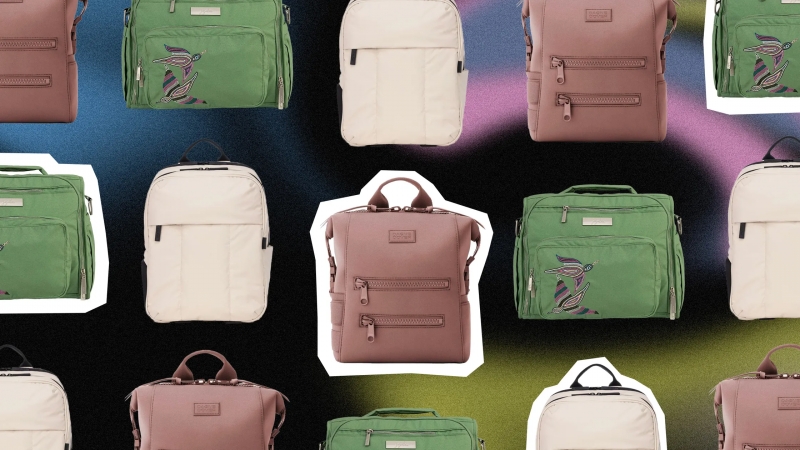
- 2025-07-18
Neoprene Bags vs. Polyester/Nylon Bags — Detailed Comparison
Neoprene Bags vs. Polyester/Nylon Bags — Detailed Comparison
As a specialized manufacturer of neoprene (also known as diving material) bags, we are often asked: What’s the difference between neoprene bags and regular polyester or nylon bags? Here’s a clear breakdown to help you understand the materials, key features, pros & cons, and buying tips.
1. What is Neoprene?
Neoprene is a type of synthetic rubber foam, originally used for wetsuits and diving suits.
It is soft, flexible, and naturally water-resistant.
Often used for sports bags, laptop sleeves, diaper bags, lunch bags, beach bags, and fashion totes.
2. What are Polyester/Nylon Bags?
Polyester and nylon are synthetic woven fabrics widely used in backpacks, sports bags, travel luggage, and everyday totes.
Both materials are durable, lightweight, and cost-effective.
Nylon is generally stronger than polyester, while polyester is more UV-resistant.
3. Features Comparison
| Feature | Neoprene Bags | Polyester/Nylon Bags |
|---|---|---|
| Water Resistance | Excellent (naturally water-resistant) | Good (but usually needs coating) |
| Weight | Lightweight but thicker feel | Very lightweight and thin |
| Flexibility | Highly flexible, stretchy | Limited stretch, more rigid |
| Padding/Protection | Naturally shock-absorbent | Needs extra padding layers |
| Shape | Soft structure, holds shape well | Depends on lining/stiffener used |
| Appearance | Smooth, soft-touch, sporty look | Smooth or textured, more structured |
| Cleaning | Easy to hand wash, quick dry | Easy to wipe clean, quick dry |
| Customization | Good for unique shapes, laser cutting | Easy to print, dye, embroider |
| Cost | Usually higher cost | Cost-effective, wide price range |
4. Pros & Cons
Neoprene Bags – Advantages:
Naturally water-resistant — perfect for beach, gym, swim.
Shock-absorbent — protects laptops, gadgets, bottles.
Soft and comfortable to carry.
Fashionable — minimalistic, trendy look.
Neoprene Bags – Disadvantages:
Heavier than ultra-thin nylon.
May pill or attract dust if low-quality.
Not as abrasion-resistant as ballistic nylon.
Machine washing not recommended — best to hand wash.
Polyester/Nylon Bags – Advantages:
Extremely durable and abrasion-resistant.
Lightweight and easy to fold/store.
Affordable and versatile.
Wide variety of colors, textures, and prints.
Polyester/Nylon Bags – Disadvantages:
Less natural padding — needs extra foam for protection.
Cheaper coatings may wear off and reduce water resistance.
Basic look — less premium feel compared to neoprene.
5. Buying Tips
✔ Choose Neoprene if:
You need good water resistance for beach, swim, gym, or baby bags.
You want a bag that cushions your items naturally.
You like soft-touch, sporty, modern design.
You’re looking for a stylish, minimalistic everyday bag.
✔ Choose Polyester/Nylon if:
You need maximum durability for travel, hiking, or heavy-duty use.
You prefer lightweight, foldable bags.
You want many color or print options at a lower cost.
You don’t mind adding extra padding for protection.
From a Manufacturer’s Perspective
When we produce neoprene bags, we ensure:
Premium neoprene thickness (usually 3–5mm) for good shape and durability.
Clean edge cutting and strong stitching to prevent fraying.
Eco-friendly glue and inks if printing is involved.
We recommend customers always check:
Material thickness and density (cheap neoprene tears easily).
Smell — low-grade neoprene may have a strong rubber odor.
Finishing — high-quality bags have neat seams and durable hardware.




 Send Email
Send Email